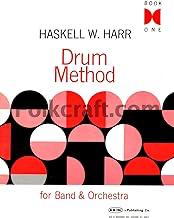dcrigger
Senior Member
I think the logic behind that approach is acknowledge not only can take on exploring things (like that basic rock beat) on their own, but absolutely should.There's one caveat that I would add about starting reading very early on in lessons:
We just need to be careful that the reading doesn't end up setting the pace for all of the drumming progress. In other words, we don't want to create a scenario where the student is limited to only playing things that they're already able to read.
My own first teacher unintentionally almost did that. Reading was just about the only thing that we did in our lessons. If I hadn't taken the initiative to learn things outside of the lessons as well, I literally wouldn't have learned a basic rock beat until it eventually came up in some book...if it ever did!
Imagine if we handled language like that. We would have 6 year olds talking like, "The...cat...has...a...hat. See...Jane...run. Jane...has...fun."

Nobody can (or should even try to) teach every aspect of playing the drum set - most specifically the player's building of vocabulary. Because there is no fixed, established vocabulary - as each player must find their own bits and pieces - and must internalize them into a system that resonates with them.
This is entirely different learning to be a classical player - on clarinet, violin, or even percussion. There is a specific standard literature and the techniques required to play that literature. That's the path - and really isn't that personalized. Where drum set is an instrument that grew from folk music, specifically jazz.... meaning IMO the main purpose of our drum set teachers is set us up with those technical basics that both classical percussion and drum set playing share. And sure there can be some get things started on the stylistic, basic time patterns, fills, figures, etc, front - but I think lots of it beyond that falls on the player.
Personally I'm not a proponent of doing too much drum set work early on in lessons - work that is too often beyond the beginners ability to play with actual understanding and ownership - counting and coordination-wise. (But I get that many don't agree with me on this).


